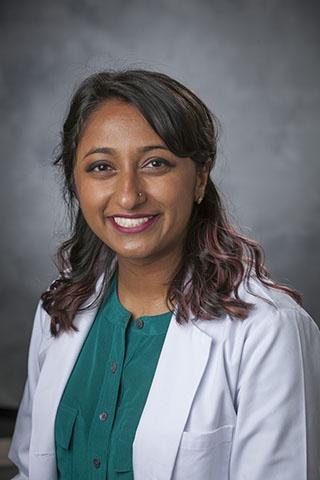It took interviewing in three specialties for me to realize that family medicine was the place for me. I think that ultimately, I would have found purpose and fulfillment in many specialties. However, I am thrilled that I found a home in family medicine. There is a unique joy that comes from caring for people from birth until death and from building relationships with families over time. I feel very fortunate to have been able to pursue my passion for reproductive health by training in abortion care as a resident and, next year, by completing a family medicine obstetrics fellowship.
In the spirit of celebrating family medicine and my journey through medical training, I’d like to share my personal statement from when I applied for residency.
In his novel, Midnight’s Children, Salman Rushdie employs many recurrent themes, including that of having many mothers. I, too, have had many mothers: women who guided me at critical points in my life and nurtured aspects of my identity. During my last year of college, my ethnic studies professor helped fashion my motivation for becoming a physician. I had spent the summer prior in Uganda implementing public health interventions. My childhood, split between the ethnoburbs of the Bay Area and the urban sprawl of Bombay, India, had prepared me to adapt to new customs with ease. However, I was surprised by the fluidity of my racial identity: depending on the setting, I could be an American volunteer or presumably a member of the local South Asian merchant class. I was struck by the contextualization of race within local history. As I unpacked my observations through my classes in medical anthropology and ethnic studies, I began to understand the social and economic processes that had shaped my experiences and were part of my history, like the immigration laws that had enabled my parents to move to California from India.
My undergraduate experiences in community health catalyzed my growing understanding of and commitment to racial justice. This internal transformation has allowed me to appreciate the local contexts that define my patients as well. Having a working knowledge of the policies behind the expansion of the American prison population since the 1970s gives me a framework for understanding why my patient in the chronic care clinic at the county jail had been incarcerated for unpaid parking tickets. My college professor was vital to this process: she encouraged me to work towards equity with the skill set of a physician, whether that meant providing medical care to undocumented immigrants, advocating for just immigration reform, or both. Food security, immigration, mass incarceration, and reproductive justice are just some of the pressing issues closely interrelated with health that inform the setting in which I will practice medicine.
From my yoga teacher in San Jose, California, I have learned to cultivate a relationship with my body. With over thirty-five years of experience, she guides a tight-knit community facing a slew of chronic diseases ranging from fatigue to rheumatoid arthritis. I have seen the transformation within our bodies through sustained physical practice accompanied by the targeted use of food. I have learned the meaning of health maintenance and its crucial role in chronic disease prevention. My yoga teacher has taught me to understand my patients and myself as whole people, to respect the connections between organ systems, to hold reverence for the complexity of illness. These lessons complement my medical training and offer me an additional lens through which to approach problems poorly addressed by biomedicine. By profoundly shaping my understanding of preventive medicine, this class has arguably been my most important longitudinal clinic.
My mother imparted to me the joy of seeing people, especially children, grow, and my inpatient medicine attending inspired me to take care of adults. While equity is the underlying question behind my work, what drives me every day are in the intimate moments: the three year old whose parents told me, “you can’t leave because you’re the only reason she’s been able to calm down,” while I soothed her during a post-op check, or the woman who confessed that “my family would kill me if they knew I was here” after my resident finished her abortion. When my medicine attending hugged all of her patients, I could see myself in her. I felt that she acknowledged the privilege of guiding people through health and illness that comes with clinical problem solving. She pushed us to comprehensively evaluate our patients, to take our patients’ lives outside of the hospital into account by going through medications and insulin regimens and ensuring a seamless transition to outpatient care. My role models have helped me envision a dynamic career in academic medicine addressing the medical needs of underserved populations through primary care and promoting health equity through policy change and education. I am well equipped to work with diverse populations, tackling a wide array of medical problems, and the broad training of a family medicine residency will make me a versatile physician. Like the women who have supported me, I look forward to being present in my patients’ lives as a guide, a teacher, and a nurturer.
Mansi Shah is a third-year resident with the Duke Family Medicine Residency Program. Email mansi.shah@duke.edu with questions.
Editor’s note: Duke Family Medicine residents guest blog every month. Blogs represent the opinion of the author, not the Duke Family Medicine Residency Program, the Department of Community and Family Medicine or Duke University.
